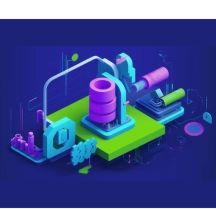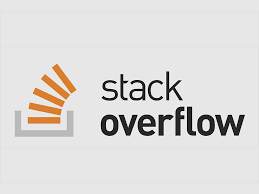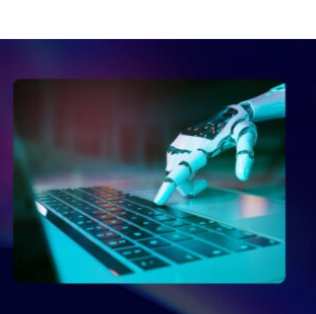|
Our weekly digest lists the week's news, new titles added to our Book Watch Archive and our weekly book review. This week's top featured articles is an extract from Programming the ESP32 in MicroPython by Mike James and Harry Fairhead.
To receive this digest automatically by email, sign up for our weekly newsletter.

July 27 - August 02, 2023
Featured Articles
|
ESP32 In MicroPython: WiFi
01 Aug | Mike James & Harry Fairhead

Getting started with WiFi on the ESP32 is fairly easy but there are some things that are hard to find out - like how to set the country code. This extract is from Programming the ESP32 in MicroPython and shows you how to make a WiFi connection.
|
Kubernetes Resource Requests
27 Jul | Sigal Zigelboim

Understanding and effectively using Kubernetes resource requests and limits is crucial for managing your applications' performance and stability. Not only can you ensure the optimal operation of your Kubernetes workloads, but also conserve costs in the long run. Here are some tips to help you.
|
|
Programming News and Views
|
Goodbye GIL - But Will It Make Python Faster?
02 Aug | Mike James

The obvious answer is - it all depends on what you mean by "fast". It will make some things better and inevitably make some things worse. But after agonizing for a long time, the fate of the GIL is sealed.
|
Get Ready For DevOps
02 Aug | Sue Gee

DevOps is more than just a fusion of development and operations. It is the cultural change that organizations everywhere are adopting to become more agile and innovate at scale. CI/CD (Continuous Integration/Continuous Delivery) is one of its central tenets. Here we look at three short online courses on the topic from Coursera, edX and Udacity.
|
Lightbend Improves Kalix Developer Experience
01 Aug | Kay Ewbank

Lightbend has announced a new developer experience for Kalix. Lightbend produces cloud-native microservices frameworks while Kalix is a Platform-as-a-Service, developed by Lightbend, that combines an API-first, database-less programming model with a serverless runtime.
|
Hutter Prize Awarded Again
01 Aug | Mike James

A tweet from Marcus Hutter last month announced a new winner of the €500.000 Prize for Compressing Human Knowledge. €5.187 was awarded to Saurabh Kumar for setting a new world record in compressing a 1GB excerpt of Wikipedia. Why the odd number? It's in recognition of beating the previous record by 1.04%.
|
Turn Your SQLite Database Into A Server
31 Jul | Nikos Vaggalis

..with the 'sqld' daemon and access it over the network using the PostgreSQL wire protocol. The use cases do not stop there.
|
Microsoft Introduces TypeChat
31 Jul | Kay Ewbank

Microsoft has introduced TypeChat, an experimental library that makes it easy to build natural language interfaces using types.
|
PhotoGuard - Protecting Images From Misuse By Generative AI
30 Jul | Sue Gee

Researchers at MIT have come up with a technique to prevent images being altered by AI-powered photo editing. The result of manipulating an image protected by PhotoGuard will immediately reveal it to be fake.
|
Stack Overflow Announces AI-Powered Features
28 Jul | Sue Gee

Stack Overflow has unveiled its plans for incorporating generative AI into both its public and enterprise platforms. OverflowAI is a series of initiatives including AI-enhanced search, the most significant being an OverflowAI Visual Studio code extension in Stack Overflow for Teams. Given the way users have abandoned Stack Overflow, will this be enough to attract them back?
|
FerretDB The MongoDB Drop-In Replacement Is Production Ready
27 Jul | Nikos Vaggalis

FerretDB moves your application workloads from MongoDB to PostgreSQL. Why is that big a deal?
|
GitHub Repository Rules Now Generally Available
27 Jul | Kay Ewbank

GitHub has announced that its Repository Rules feature is now generally available. Repository Rules can be used to define protections for branches and tags in repositories. GitHub Enterprise Cloud customers can enforce them across the entire organization.
|
Implementing Automated Code Testing
27 Jul | Lucy Black

Increasingly automated code testing is becoming a reality - and with the availability of ChatGPT you need to do little more than ask for it to happen. Here are seven best practices to follow.
|
|
Books of the Week
If you want to purchase, or to know more about, any of the titles listed below from Amazon, click on the book jackets at the top of the right sidebar. If you do make Amazon purchases after this, we may earn a few cents through the Amazon Associates program which is a small source of revenue that helps us to continue posting.
|
Full Review
|
Authors: Bryan Sills, Brian Gardner, Brian Hardy and Kristin Marsicano
Publisher: Addison-Wesley
Pages: 688
ISBN: 978-0137645541
Audience: Kotlin programmers
Rating: 4.5
Reviewer: Mike James
The Big Nerd Ranch Guide to Android is back with a fifth edition. It now covers Compose - but only just.
|
Book Watch
|
This book, subtitled "Develop, deliver, discuss, design, and go again" is a hands-on guide to shipping Go-based software. Joel Holmes shows how to build and upgrade an automated software delivery pipeline that supports containerization, integration testing, semantic versioning, and automated deployment. He looks at how to put continuous delivery and continuous integration into action, with guidance on automating your team’s build and reacting with agility to customer demands.
|
Subtitled "Advance your skills and write effective automated tests with Vitest, Playwright, and Cucumber.js", this book shows how to build robust and performant applications by developing SvelteKit applications using automated testing and TDD techniques, including unit and end-to-end testing, custom matchers, component mocking, and authentication. Daniel Irvine shows how to use the test-driven development (TDD) workflow, and covers the principles of unit testing with Vitest and end-to-end testing using Playwright and Cucumber.js.
|
This book, subtitled "How Wi-Fi Became the World’s Most Beloved Technology" tells the international story of the people who created Wi-Fi, their early battles against skeptical opponents, and how it ultimately exploded across the globe to become synonymous with the internet itself—as told by one of Wi-Fi’s central figures. Greg Ennis tells of the techno/political conflicts at its birth, the battles against competing technologies as it was being nurtured, and the international diplomatic intrigue as it spread across the planet.
|

I Programmer has reported news for over 12 years. You can access I Programmer Weekly back to January 2012 for all the headlines plus the book reviews and articles.
To keep up with the latest news and receive this digest automatically by email, sign up for our weekly newsletter and follow us on Twitter, Facebook, and LinkedIn , where you are welcome to share all our stories.
You can also subscribe to our RSS Feeds - we have one for Full Contents , another for News and also one for Books with details of reviews and additions to Book Watch.
Send your programming press releases, news items or comments to : NewsDesk@i-programmer.info
|
















